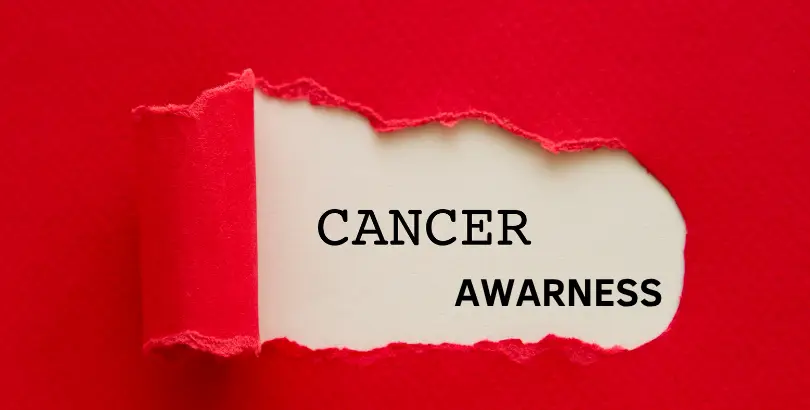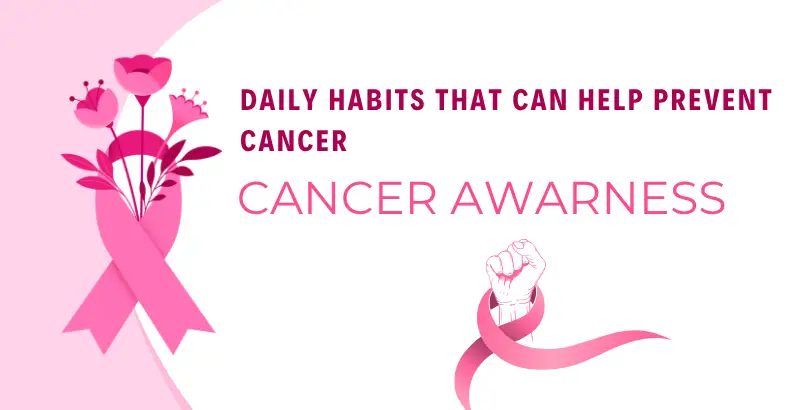
Daily Habits That Can Help Prevent Cancer
Cancer Prevention: Taking Control of Your Health
Daily habits that can help prevent cancer include eating healthy, staying active, avoiding tobacco, and managing stress for lifelong wellness. Cancer is a term that is so very heavy. Globally, millions of individuals are diagnosed with cancer each year, and one in every three people will develop it sometime during their lifetime. While this information can be daunting, there is also some comfort to be had — medical science has learned a great deal about cancer, resulting in earlier detection, better treatments, and higher survival rates.
But you don’t have to wait until future medical advances. A great deal can be done today to lower your risk. Learning about early warning signs, having regular check-ups, and making healthy lifestyle changes can help in a big way. Many experts think that a high percentage of cancers and cancer deaths can be avoided through simple, day-to-day decisions.
Why Early Detection Matters
Early detection of cancer can be a lifesaver. Screening tests like mammograms, colonoscopies, Pap tests, and low-dose CT scans for some smokers can identify cancer in its earliest, most curable forms.
Outside of scheduled tests, take notice of potential symptoms and bodily changes. One helpful reminder to identify warning signs is:
C – Change in bowel or bladder habits
A – A non-healing sore
U – Unexplained bleeding or discharge
T – Thickening or lump in the breast or other area
I – Indigestion or dysphagia
O – Obvious change in a mole or wart
N – Persistent cough or hoarseness
“Your daily habits are your first line of defense—eat well, stay active, and live healthy to lower your cancer risk.”
Central Mediaa
Daily Habits That Can Help Prevent Cancer and safe your Future
These symptoms are not necessarily cancer — indeed, the vast majority of them result from less serious illnesses. But they must never be dismissed. Other significant signs include inexplicable weight loss, persistent tiredness, or pain that fails to get better.
Prevention Is Better Than Cure
Although early detection saves lives, prevention is the ideal protection. Below are 10 most significant ways to minimize your cancer risk and aid your long-term health.
1. Stop Tobacco Use Entirely
Use of tobacco is the leading preventable cause of cancer. Smoking causes cancers of the lung, mouth, throat, pancreas, bladder, cervix, and kidney. Secondhand smoke also raises your risk. Stopping smoking — or never smoking — is one of the healthiest things you can do.
2. Follow a Balanced, Nutrient-Dense Diet
What you consume is a big factor in preventing cancer. Lower your consumption of saturated fats and red meat, which could potentially lead to higher risks of some cancers. Replace that with fruits, veggies, and whole grains packed with antioxidants, vitamins, and fiber.
Tips on healthy eating:
Have at least five portions of fruits and vegetables daily.
Substitute processed food snacks with nuts, seeds, or fresh fruit.
Select lean protein sources such as fish, chicken, beans, and lentils.
3. Be Active Physically
Physical activity helps manage weight and lower the risk of various cancers, like colon and breast cancer. At least 150 minutes per week of moderate-intensity activity, including walking, swimming, and cycling, is recommended.
4. Have a Healthy Weight
Excess body fat has the potential to increase the risk for cancers like breast, colon, kidney, and prostate cancer. The best strategy for weight control is by ensuring healthy diets coupled with exercising regularly.

Change Your Life with Daily Habits That Can Help Prevent Cancer
5. Reduce Alcohol Intake
If you drink, do so only in moderation. No more than one drink a day if you’re a woman, no more than two for a man. Drinking raises the risk of cancer of the mouth, pharynx, esophagus, liver, colon, and breast. And if you’re also a smoker who drinks daily, the risk is even greater.
6. Guard Against Harmful Radiation
Radiation harms DNA and raises cancer risk. Though unavoidable exposure to some is inevitable, you can cut back on unessential risks by:
Getting medical imaging only when needed.
Having your house screened for radon gas, a major contributor to lung cancer among non-smokers.
Shielding skin against UV radiation with sunscreen, hats, and shade.
Radiation from common appliances such as microwaves and cell phones has not been shown to result in cancer.
7. Avoid Harmful Chemicals
Some job and environmental exposures cause cancer. They include:
Asbestos fibers
Benzene
Aromatic amines
PCBs (polychlorinated biphenyls)
If your job is working with hazardous materials, adhere to protective measures closely and use protective gear.
8. Prevent Infections Linked to Cancer
Some viruses and infections raise cancer risk. Examples are:
Hepatitis B and C → liver cancer
HPV (human papillomavirus) → cervical, throat, and other cancers
HIV → multiple cancers through compromised immunity
Practice safe sex, don’t share needles, and receive recommended vaccinations.
9. Prioritize Sleep
Good sleep helps maintain your immune system and overall health. Poor or inadequate sleep has been connected with weight gain, hormonal disruptions, and inflammation — all of which can contribute to increased cancer risk. Aim for 7–9 hours of good-quality sleep per night.
10. Obtain Adequate Vitamin D
Vitamin D is also crucial for bone health and has been shown to potentially prevent some cancers, such as prostate and colon cancer. Adults are usually recommended to have 800–1,000 IU each day from sunlight, food, or supplements.
Central Mediaa
Additional Tips to Reduce Cancer Risk
In addition to these 10 essential steps, you can also ensure additional protection of your health by:
Drinking enough water — water makes your body run smoothly.
Stress management — chronic stress can compromise immunity.
Scheduling regular check-ups — preventive medicine is vital.
The Bottom Line
Daily habits that can help prevent cancer include eating healthy, staying active, avoiding tobacco, and managing stress for lifelong wellness. Cancer isn’t necessarily preventable, but the everyday decisions you make can significantly affect your risk. Refraining from tobacco use, maintaining a healthy diet, staying physically active, shielding yourself from damaging exposures, and taking charge of your health can all help.
Your health is your best asset. Guard it by living carefully and making choices today that will enable a healthier tomorrow. As the old wise saying goes:
“An ounce of prevention is worth a pound of cure.”
Disclaimer:
Content on this site is for informational purposes only and not medical advice. Consult a healthcare professional before making health changes.












2 Comments
I was diagnosed with multiple sclerosis 6 years ago after experiencing weakness, numbness, and other symptoms. Despite numerous treatments, my condition worsened, and I was losing hope. Two years ago, my son recommended EarthCure Herbal Clinic( www. earthcureherbalclinic .com), where Dr. Madida Sam helped cure a friend’s mother of Parkinson Disease and HPV. I decided to give it a try, and within four months, all my symptoms reversed. It’s been two years, and I’m symptom-free, back to work, and living a healthy life. My doctors were amazed by my recovery. I highly recommend EarthCure, it’s been life-changing for me.
Good